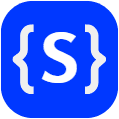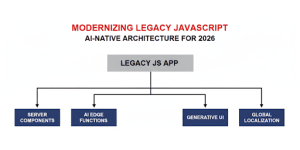Role of AI in College Education
AI technologies, such as machine learning, have been around since the 1950s. The term “artificial intelligence” was coined in 1956 by John McCarthy at Dartmouth University.
Over the years, artificial intelligence has evolved and become more sophisticated. It allowed technology to do increasingly complex tasks and perform like humans.
AI is now being used in education to help:
- improve student learning outcomes
- automate mundane tasks for teachers
- provide personalized teaching options.
Teachers are using tools that are powered by AI to help them grade homework and tests quickly and correctly. These tools also change based on how much each learner understands, which helps teachers teach in the best way for each student.
Artificial intelligence can also be used to make learning plans for each student that are based on how well they do on tests and assignments. This lets teachers better tailor their lessons to help their students do well.
AI can also be used to offer virtual tutoring services, which let students get help from a knowledgeable person in real time and on their own terms.
AI is also used to keep track of how students are doing and to look at data to find ways to improve. For example, AI-based systems can find patterns in how well students do in school that could be signs of problems like anxiety or depression.
AI can let teachers and school administrators know about these problems early on so they can take the steps needed to help the student’s health. Let’s talk about how learners can use artificial intelligence in more detail.
Editing Services
Using AI for paper editing has become a popular way for students to make their lives easier. But with real writers, students can get their papers edited quickly and accurately without having to do the tedious work themselves.
In addition, they can access professional writers who are available 24/7 to help polish up any paper that needs a touch-up. This allows students more time to relax, study or pursue other activities instead of spending hours trying to perfect their essays on their own.
In general, essay editing services with real writers have made it much easier for students to ensure their papers are free from errors and well written.
Natural Language Processing (NLP)
NLP technology can be used to process text or speech that is written or spoken in a natural language. For example, it can be used to figure out how people feel about something or to pull important information out of a lot of data.
Students can use NLP technology to automate tasks like:
- summarizing articles
- putting documents into categories
- figuring out what customer feedback means.
Computer Vision and Automation
AI software called “computer vision” is used to analyze digital images and videos. For example, it can recognize objects and faces in images and pull information from videos.
Students can use computer vision technology to automatically find content in documents or photos and get useful information from large datasets.
They can automate tasks that they do often, like entering data into spreadsheets or filling out online forms, with tools that are powered by AI. Students can also make presentations quickly with the help of automation tools, which can use templates or autogenerate content.
AI and Thesis Writing
Artificial Intelligence (AI) tools are being used more and more by students to help them write their theses because they have many benefits. AI can help students with their research by giving them access to huge libraries and databases with useful information that might not be available locally.
Postgraduate courses in fields like biblical and theological studies are leveraging AI to analyze ancient texts, compare translations, and identify historical patterns. For example, NLP algorithms can process large volumes of theological literature, while machine learning helps uncover linguistic trends in scripture.
AI can also help students improve their search results so that they fit the needs of their project. Using natural language processing and machine learning algorithms, AI tools can also help students quickly and accurately look at a lot of data.
This speeds up the process of understanding complex information and allows students to make better decisions about the direction their thesis should take.
Additionally, some AI tools are designed to help students structure and organize their work, reducing time spent on tedious formatting tasks.
Finally, many AI tools are designed to detect plagiarism, helping students ensure that their work meets the highest standards of academic integrity. In short, AI tools provide invaluable support for thesis writing and can help make the process more efficient and effective.
Conclusion
In the end, AI technology is changing everything about college, from editing essays to writing theses. It lets students get feedback and help on their work that is more specific to them. AI-assisted writing tools can also help students write essays that are more accurate and make more sense in less time.
AI could also help cut down on mistakes that could lead to plagiarism or other academic crimes. Lastly, AI-backed tutoring platforms make it easier and faster for students to find qualified tutors than with traditional methods.
All of these advantages show that Artificial Intelligence can be a very helpful tool for college students who want to get better at writing. With all of these technologies improving so quickly, it’s clear that AI will continue to play a bigger and bigger role in higher education in the years to come.
Author’s BIO
Helen Birk is an AI expert with several years of experience in the field. She has worked with a variety of companies in the AI sector to develop new products. Her passion for AI has driven her to explore different applications of the technology, from predictive analytics to natural language processing.


